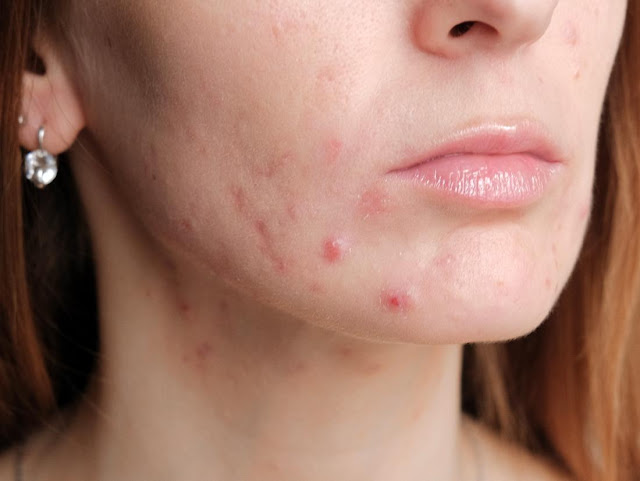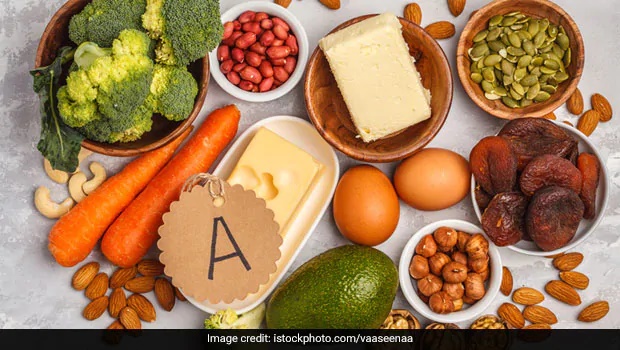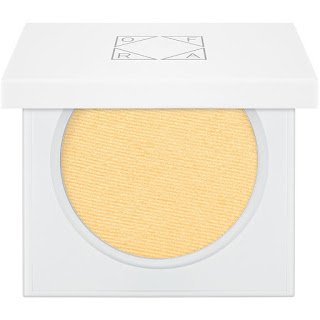One of visible pregnancy symptoms is acne. Many women experience acne during the first and second trimesters.
 |
| photo source |
There are two major factors responsible for pregnancy acne. The primary cause is the increased hormone levels in the first trimester. A hormone called progesterone, which is responsible for helping create an ideal environment for s fetus, causes the glands in your skin to produce more oil called sebum. Because progesterone surges during pregnancy, the excess sebum can clog pores leading to a build up of bacteria.
The second factor responsible for pregnancy acne is your body's tendency to retain more fluids to accommodate the growing fetus. However, because your body is releasing less fluid that contains toxin, your body may try to rid itself of toxin through your sweat and skin. This causes the toxin to build up in your pores that can lead to acne.
Managing acne when you're pregnant can be difficult because many prescription and over-the-counter medications come with a high risk of birth defects. That's why if you have pregnancy acne and wish to treat it, always talk to your prenatal care provider first.
Since it is not safe to take acne medications, you may prefer to try more natural options for treatment. Here are a few ways you can try to reduce acne:
Clean your face twice daily
Prevent flare-ups by taking good care of your skin during pregnancy. Use mild, soap-free cleanser twice a day, in the morning and at night. Make sure to wash and rinse thoroughly. Don't scrub too hard to avoid skin irritation that can worsen acne. Also, wash your hair regularly and keep your towel, pillow cases or hats you use clean as well.
 |
| photo source |
Keep your skin moisture
Moisture your skin with oil-free moisturizer to minimize irritation. Also, an overly-dried skin is more prone to acne.
Drink lots of water to flush out toxins
Drinking plenty of water helps flush out your skin, keeping it moist and clearer. Drink at least eight glasses of water each day.
Increase your dietary intake of vitamin A
Increase the amount of vitamin A, which helps keep skin healthy. Vitamin A helps reduce the amount of sebum your skin produces that can help prevent your pores from clogging. Foods high in vitamin A include eggs, fish, and carrots, and milk. However, although vitamin A can improve your skin, it can also be dangerous for pregnant women in high amounts. It is better to talk to your prenatal care provider about how to strike the right balance of vitamin A in your diet.
Eat smart
Cut out sugar and refined grains in your diet. Also, avoid eating unhealthy fats, those saturated fats found in fried foods and many baked goods. These can worsen acne, so it s better to replace these with skin-boosting healthy fats like avocado, salmon, walnuts, and almonds. Eat more skin-friendly foods like colorful fresh fruits and vegetables and, small amounts of dark chocolate. But just eat chocolate in moderation because it contains caffeine.
Buy oil-free skin care products
Look for skin care, makeup, and even hair care products, which are oil-free and are labeled non-comedogenic or non-acnegenic (won't cause pimples or acne). Oil-free moisturizers, make up and matte powder like pressed banana powder are good buys as well to help you conceal those unpleasant acne.
Pressed Banana Powder
This innovative matte powder, which is lightly banana-scented, is versatile and can be used to:
-Conceal dark under eye circles
-Set concealer
-Highlight the under eye area, the brow bone, the bridge of the nose, the middle of the forehead and the chin
-Set foundation
-Matte eyeshadow
Consult your practitioner
When worse gets worst, talk to your practitioner who can recommend tropical acne treatment safe for pregnant women.
Those are ways to manage and treat pregnancy acne. Remember these stubborn acne will go away so don't stressed your self Mama!



No comments:
Post a Comment
Please use the DISQUS box to comment.